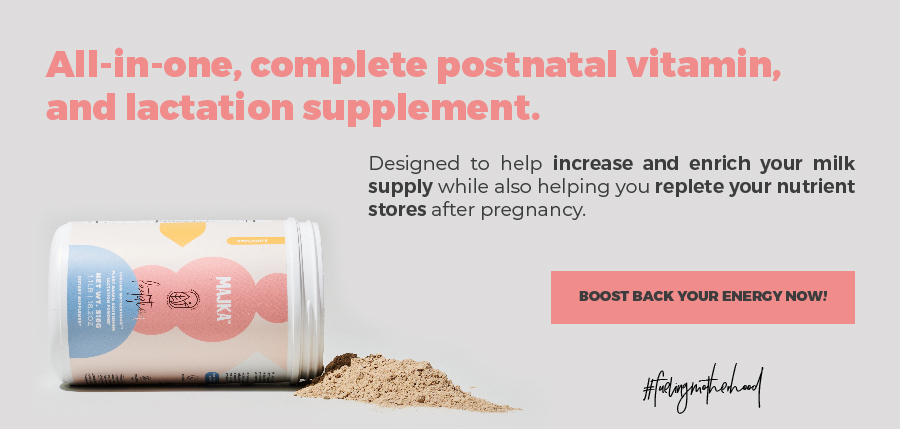
There is a wealth of information about health, nutrition, and supplements.
In this article, we will tell you about what supplements are and what effects they can have on your body.
Always keep in mind that each person has different needs and you should talk to your healthcare provider when deciding what to take.
What are Supplements and why do people take them?
Supplements are a beneficial product that are an addition to conventional food. They come in a variety of forms including: tablets, soft gels, capsules, bars, liquids, gel caps, gummies, and powders.
The Food and Drug Administration (FDA) has said that supplements are not intended to treat, diagnose, prevent or cure diseases.
Supplements are recommended for people with specific conditions. Pregnant women, for example, are told to take folic acid to reduce the risk of neural tube defects. Vitamin D is recommended in cases where there is a lack of sunlight or natural vitamin D.
People take supplements to complement their diets when they have a deficiency of a certain vitamin or mineral.
Why are supplements good for our body?
Supplements are a great choice when there is a deficiency in a person’s nutritional needs due to lifestyle or the diet of each individual.
Some common supplements that may benefit a person’s health are:
- Probiotics (improve gut health)
- Calcium and vitamin D (promote bone health)
- Fiber (prevent constipation)
- Vitamin B12 (help a healthy red blood cell formation)
- Vitamin C (helps supply chemical messengers used in the brain and nerves)
- Vitamin A (can lessen vision loss)
- Omega-3 (promote heart health)
- Zinc ( promote skin health)
- Melatonin (help with sleep)
What is considered a supplement?
- Dietary Supplement Health and Education Act (DSHEA) of 1994 says that a dietary supplement is a product that contains a “dietary ingredient” intended to supplement conventional food. This product must include a label with the term “dietary supplement” or equivalent.
- Dietary supplements aren´t conventional food. They are not meant to treat, diagnose, prevent or cure diseases.
*Products marketed as dietary supplements may contain hidden drugs ,putting consumers at risk. Always consult a health care professional before taking any supplement.
What supplements are available on the market?
Some dietary supplements need a prescription. Others can be purchased at grocery and convenience stores, pharmacies, or online.
Supplements contain vitamins, minerals, amino acids, herbs, enzymes, and other botanicals. Here are some examples of supplements::
- Vitamins and minerals ( vitamin D, A, C and Calcium)
- Specialty supplements (omega-3 fatty acids, fiber, etc.)
- Herbal and botanics (garlic, turmeric, echinacea, etc.)
- Sport nutrition and weight management (protein, hydration drinks, caffeine pills, etc.)
Are there reasons I should not take supplements ?
Supplements may interact with medications, lab tests or have dangerous effects during surgery. Always ask your doctor before taking a supplement.
The (FDA) mentions that drugs for HIV/AIDS, heart disease, depression, treatments for organ transplants, and birth control pills don’t work at their best when combined with St. John’s wort (an herbal supplement). It is also harmful to mix warfarin (a prescription blood thinner) and ginkgo biloba (an herbal supplement)l as each thin the blood. Taking the two together could put you at risk of stroke or internal bleeding.
Even though supplements are “natural”, they can harm you if not taken correctly.
Supplements are regulated by the Food and Drug Administration (FDA) as foods not as drugs. In order for them to be a safe choice for you, always ask your healthcare provider before consumption.
There are supplements that contain many nutrients. It is important to take the daily dose that was recommended by your doctor. (always check the ingredients and dosages).
Always make sure you take the correct dosage as you may still have a deficiency of the nutrients you need.
Here are some things that may happen if you overdose:
- Excessive use of vitamin A may cause liver damage, reduce bone strength, and cause headaches or birth defects.
- High doses of vitamins C and E have been associated with low birthweight babies. Excessive supplementation of vitamin c could occasionally increase the risk of kidney stones.
- High zinc intakes impede copper absorption. This leads to deficiency, anemia, and neurological problems.
- vitamin D should be paired with calcium to improve its absorption, prevent cellular apoptosis, and prevent artery hardening.
- Excessive intake of iodine can cause thyroid disorders, including congenital hypothyroidism in infants.
- High doses of iron may cause constipation as well as diarrhea.
- Vitamin K(can reduce the effectiveness of blood thinners).
- Comfrey and kava (can damage the liver).
- Gingko, (can increase blood thinning)
Do lactating mothers benefit from supplements?
Pregnancy and lactation pull from the body’s stores of nutrients essential to the neurotransmission system. These include: folate, vitamin D, Fe, Se, Zn, and fats and fatty acids. The World Health Organization (WHO) recommends ongoing use of a prenatal vitamin if you are breastfeeding, as it can aid in your baby’s vision and brain development.
Micronutrient deficiencies can cause several serious health issues. The WHO has found that some of the most common deficiencies in children and pregnant women are iron, vitamin a, and iodine.
In order to produce breast milk, the mammary gland needs vitamins A, B1, B2, B6, B12, D, docosahexaenoic acid (DHA), choline, and iodine. If you aren’t getting enough nutrients in your daily diet, you may need to use a supplement.
Other nutrients that have shown to be in high demand during breastfeeding are C, E, folate, iron, zinc and selenium.
The concentration of vitamin D in breastmilk has been found to be relatively low. The American Academy of Pediatrics recommends a vitamin D supplementation within days after birth. This can be achieved if the mom takes vitamin D supplementation at6400 IU/day. Thissafely supplies breast milk with adequate vitamin D to satisfy the baby´s needs.
Overall, the important thing to know is that supplements are never a replacement for real food. They are not substitutes, so always maintain a healthy diet, exercise, and talk to your health care provider if you have any issues.
Intake of supplements should always be pre approved by your doctor.
At Breastfeeding 101, we invite you to follow our content similar to this topic. Here are some sources that made this article possible:
Boosting Immunity While Breastfeeding: Vitamins and Their Safety I Healthline
Calcium: A Nutrient in Pregnancy I National Library of Medicine
Dietary Supplements: A Framework for Evaluating Safety. I National Library of Medicine
Dietary Supplements: Beneficial to Human Health of Just Peace of Mind? A Critical Review on the Issue of Benefit/Risk of Dietary Supplements I Reasearchgate
Dietary Supplements—For Whom? The Current State of Knowledge about the Health Effects of Selected Supplement Use I National Library of Medicine
Dietary Supplements: What You Need to Know I National Institutes of Health
Effects of Omega-3 Fatty Acids on Immune Cells I National Library of Medicine
Evidence-Based Recommendations for an Optimal Prenatal Supplement for Women in the U.S., Part Two: Minerals I National Library of Medicine
FDA 101: Dietary Supplements I U.S. FOOD & DRUG ADMINISTRATION
Infant and toddler health I Mayo Clinic
Marine Oils I National Library of Medicine
Maternal Versus Infant Vitamin D Supplementation During Lactation: A Randomized Controlled Trial I National Library of Medicine
Micronutrients I The World Health Organization
Multiple micronutrient supplements versus iron-folic acid supplements and maternal anemia outcomes: an iron dose analysis I The New York Academy of Sciences
Nutritional supplements and mother’s milk composition: a systematic review of interventional studies I National Library of Medicine
Nutrients and perinatal depression: a systematic review I National Library of Medicine
Nutrition Support Team Guide to Maternal Diet for the Human-Milk-Fed Infant I National Library of Medicine
Risk factors for self‐reported insufficient milk during the first 6 months of life: A systematic review I National Library of Medicine
Supplements: A scorecard I Harvard Health Publishing
The importance of maternal nutrition during breastfeeding: Do breastfeeding mothers need nutritional supplements? I anales de pediatría
Vitamin C I National Institutes of Healths
Vitamins and Minerals in Pregnancy and Breastfeeding I NSW Government
Vitamin B12 I National Institutes of Health
Avery Reckers






